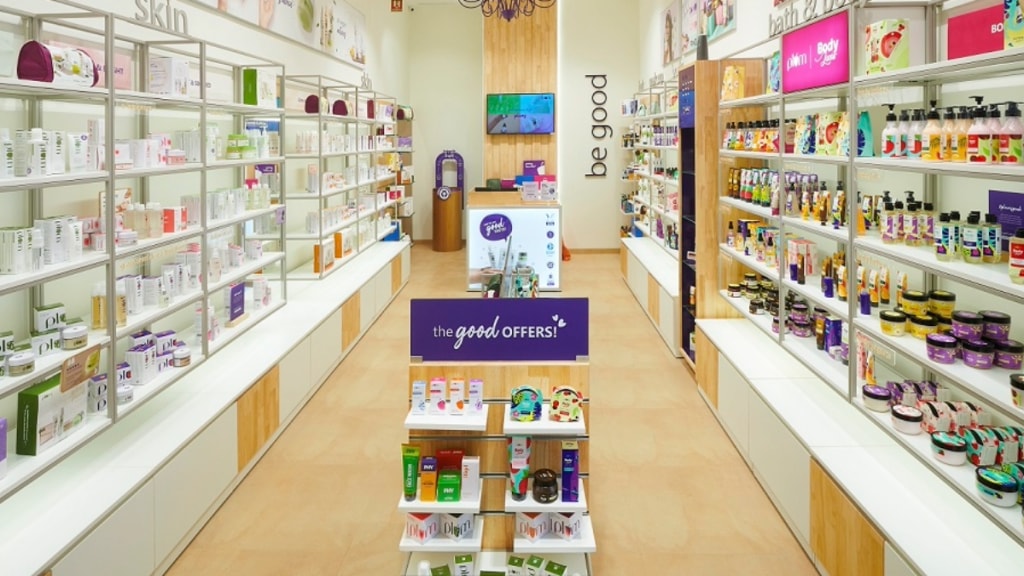Consider this. The Derma Co recently became the second brand from the Honasa portfolio to achieve a monthly revenue of Rs 30 crore, outpacing Mamaearth in under four years of inception. For its part, the Mamaearth brand had logged annual revenues of Rs 1,000 crore in September last year, the fastest D2C brand to do so. In less than a decade since launch, SUGAR Cosmetics crossed Rs 700 crore in annual sales in FY22. RENÉE Cosmetics, a three-year old brand, registered an annual recurring revenue of Rs 240 crore at the end of its second financial year. This year the brand expects to double its turnover vis-à-vis last year.
Looks like there are hardly any white spaces left in the $27.78-billion beauty and personal care (BPC) market in India today. Thanks in part to the rapid rise of homegrown brands and the category’s demonstrated resilience amid a turbulent macroeconomic environment, the market is expected to reach approximately $32.65 billion by 2027 (Statista estimates), growing by a projected 4% (CAGR 2023-28). And it’s not just the larger players like Nykaa that are turning heads; a handful of digital-first brands have also recorded exponential growth following a solid recovery since the pandemic. Shankar Prasad, founder and CEO of nine-year-old Plum, says, “The increase in disposable incomes has been a stimulus to consumers being more open to trying new brands, especially those that fall in the masstige and premium segments. This coupled with the growing importance of self-care, the surge of online shopping and word-of-mouth marketing through social media and influencer marketing have led to ease of discovery, and more purchases overall.”
The reason for the growth spurt in recent years is obvious. Despite having the same demographic advantage as China, the size of the Indian BPC market is a fifth of that of China, with little push outside metros and tier 1 cities by the global brands. RENÉE Cosmetics’ co-founder and director Priyank Shah says, “The market has a diverse audience, each with distinct needs and preferences. In other words, there’s significant headroom for smart brands to scale.” Not to forget they enjoy margins as high as 60-70%.
Riding the growth wave
A recent report by Redseer Strategy Consultants and Peak XV Partners says by 2025, India will be among the largest cosmetics consumer market, with a 5% market share in the global beauty pie. Pure-play beauty brands are expected to contribute 42% of the domestic market in 2027, up from 33% last year. Many pure-play BPC firms saw average gross margins of 72% in 2022, much higher than FMCG brands in the same space that saw average margins of 44%.
Rohan Agarwal, partner at Redseer Strategy Consultants, defines D2C brands in the BPC space as those that have at least 60% of their gross merchandise value coming in from online channels. “Several of these brands are generating a substantial share of revenue from offline channels. Pure-play BPC brands have a deeper understanding of the category and therefore, have a clear advantage even over large FMCG firms that have BPC as a part of their overall portfolio,” observes Agarwal.
Several of these D2C firms follow a strategy similar to that of global beauty giants such as Estée Lauder and L’Oreal, but offer greater customisation for Indian needs. The biggest growth opportunity lies in markets outside metros and tier-I markets, observes Kaushik Mukherjee, co-founder and COO of SUGAR Cosmetics, pointing out that 60% of the company’s business comes from tier-II markets and beyond. While the brand earns a good 10% of its business from international markets, Mukherjee is clear that the focus is on domestic growth. “Our product creation is geared to meet the demands of Indian consumers, from skin types to climatic conditions. Our aim is to continue growing while breaking even by the end of the fiscal year. This will enable us to invest in strengthening our operations, in product development, and customer experiences without relying on external capital,” he says.
Most have put offline expansion in top gear. RENÉE is expanding its general trade presence from the current 5,000 outlets to an ambitious 25,000 outlets in the coming year. SUGAR opened its 100th store in June 2022, while its next 100 came in one year flat.
Personal care company, mCaffeine too has ambitions to triple its business in the next three years. Vaishali Gupta, co-founder and chief growth officer, mCaffeine, says that the company has seen a CAGR of 170% in sales and revenues over the past four years. “Our retail expansion efforts have made our products more readily available. The Alia Bhatt campaign too has effectively nurtured brand awareness,” says Gupta.
Retail expansion would be meaningless without a strong portfolio of offerings. Since its launch in 2016, mCaffeine has widened its portfolio of offerings to include green tea-based products, and most recently forayed into make-up with its range of lipsticks. Vegan beauty brand, Plum too is looking at growth from categories that are natural extensions to its core skincare range. After launching its hair care offerings, it has forayed into colour cosmetics and more recently the baby care space.

